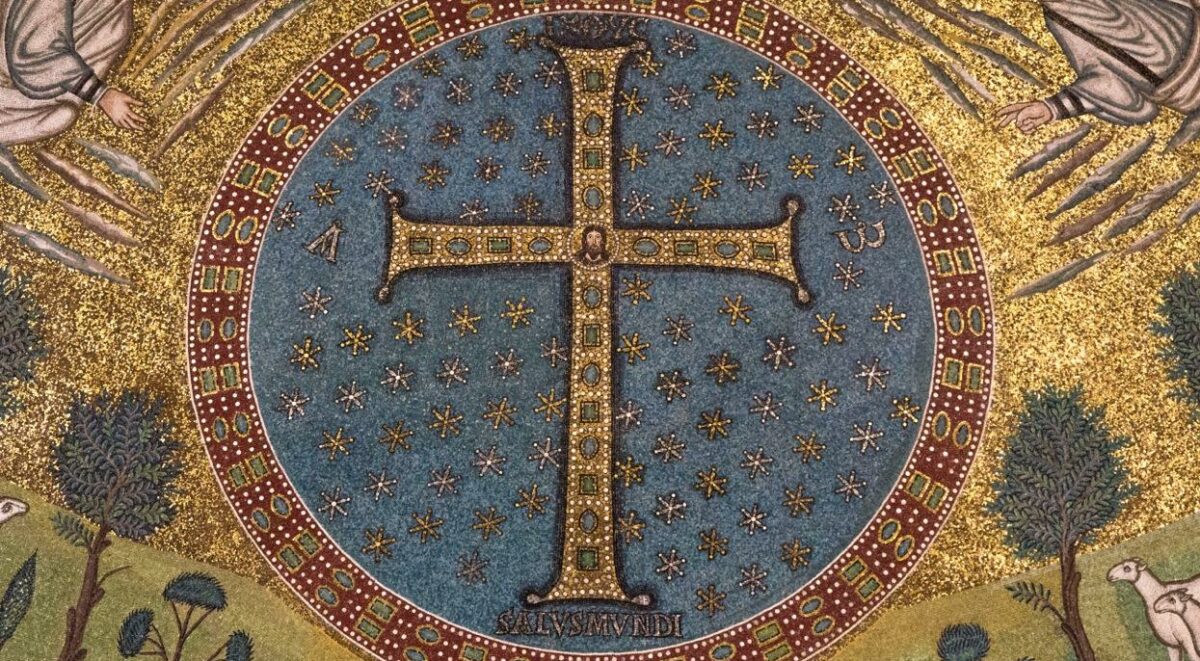
In a world of huge scientific progress but huge problems, Fr Bob Eccles OP finds hope in Jesus’ New Creation.
“This is what I will do, I will pull down my barns and build bigger ones, and store all my grain and my goods in them, and will say to my soul, My soul, you have plenty of good things laid by for many years to come. Take things easy! Eat drink, have a good time. But God said to him, Fool!” Luke 12.18-20
Build bigger ones, build big! But is it likely that only one rich man strikes lucky and has a surplus to enjoy? We can be sure that if one such entrepreneur has done well for himself, so have his competitors, and no doubt plenty of other farmers too. Somewhere there could be lots of producers on a roll. Not that agricultural matters excite folk round here, you lot wouldn’t know a thing about farming if it wasn’t for The Archers. I bet none of you were country lads like me. I’ve eaten eggs laid by hens whose names I actually knew. There’s glory for you!
But then doesn’t pulling down buildings to build bigger ones have a familiar ring to it, our Cambridge is rebuilding all around us – and not only the townscape and the infrastructure but so many fresh advances, new ventures: modern medicine, the digital revolution, robotics, biotechnologies and nano-technologies. Everything changes, even becomes obsolete overnight, our teenagers couldn’t make sense of a phone with a dial? We are already the beneficiaries of two centuries of enormous waves of change. We are excited by the possibilities that are in our own hands. Technology has removed countless evils which used to harm and limit human beings. Perhaps this gospel parable could be reimagined as an image or paradigm for a whole, dynamic explosion of wealth and knowledge that touches everyone on the planet, one way or another.
In ten generations my grandmother’s family never moved house further than a day’s horse-ride from the Lincolnshire village they started from, but in this century we have circled the earth. Nuclear energy, biotechnology, information technology, knowledge of our DNA have given us tremendous power. More precisely, those with the knowledge and the economic resources to use this power have an impressive dominance over the whole of humanity and the entire world. Never has humanity had such power over the planet, but nothing ensures that it will be used wisely, particularly when we consider how it is currently being used. When we collect for the Sudan or hear stories from the horn of Africa or the Amazon or the Mexican border it comes home to us that the poorest places on earth and the theatres of hi-tech violence are often the same places.
We shut our eyes to the facts just like the rich fool in the parable when we imagine that always-improving technological and scientific performance is limitless, bringing with it continuous, inevitable advances in security, well-being, position in the world. We could have overlooked the flaw in that. In fact the developed world has not learnt to use power well, our great leap forward hasn’t been accompanied by a development in human responsibility or a more acute sense of values, an informed conscience which would let us see the world whole. The future is not secured by having failed states, communities without clean water and parents who can’t feed their children. Or populations taking flight from flood and drought. What will be the point of offering up those optimistic bidding prayers asking for the rich nations to care for the poor, when with global warming the rich world/poor world divide is coming to an end, is crashing already?
The rich fool that we are indulges in magical thinking, based on the lie that there is an infinite supply of the earth’s goods, and this leads to the planet being squeezed dry beyond every limit. It’s a falsehood that infinite quantities of energy and resources are still available, that it is possible to renew them quickly, and that the negative effects of conflict and the unchecked exploitation of natural resources can be absorbed. We can see how the merciless assault on Ukraine is already cutting the lifelines of food and fuel that whole populations rely on, whose economies were often already fragile enough.
Of course we can still read the parable as a warning against individual petty selfishness and greed, where the culprit gets his comeuppance and where it is one who shares who makes herself rich in the sight of God. Just a matter of receiving what nature allows us on our patch, and being modest in our demands. Pope Francis in his encyclical letter Laudato Si’, on the care of our common home, I’ve been quoting from it, did you notice? – takes the wider view. The Jesuit pope asks us to discover the action of God in the soul but also in all things. This is the moral imperative and the most demanding task we could face and it won’t happen unless peoples and governments are convinced of it, without delay.
Our encounter with the risen Jesus who makes all creation new, waits to be expressed in our relations with the world about us. Our vocation to be the carers and protectors of the work of God’s hands is not a secondary or optional aspect of our Christian experience, it belongs to our radical conversion to Christ. To care for Creation and learn what needs to be done, what has to be done to restore it, is essential to the good life and to our common humanity. Nothing less will do. But is the task too great for us? There is nothing in the words of the Lord that points us in the direction of discouragement, defeatism and despair, but every incentive to engage ourselves, take courage, be full of hope.
